A
一个餐厅的骨与肉
我们可以形象地把建筑比作为身体的骨架
而内饰则就是我们的肉体
骨架固然重要
但肉体也必不可缺
设计说明
/ Design Description
艺术大师林语堂曾对「建筑之美」有如下诠释:“我们深处其中,却不知道自然在哪里终了,艺术在哪里开始”。“自然”与“人工”并不意味着“无序”和“刻意”,高级的设计就应当将自然风物纳入谋篇布局之中,由YDS姚晓冰设计事务所匠心巨制的天趣·自在餐厅正是将四季景物融入设计灵感,让食客在此能深切感受到时光流动,万物生长。
Master Lin Yutang once explained the beauty of architecture as follows: "We are indulged ourselves in it, but we have no idea where nature ends and art begins." Nature and artificiality does not mean disorder or deliberately. In this connection, natural custom should be built into the overall planning of advanced design. Drawing inspiration from seasonal scenery, the YDS Design Office endows it into Carefree, allowing guests enjoy themselves and feel the power of nature.
项目位于四川成都武侯区桂溪街道天府大道177号,是一家主营传统川菜的高档餐厅。区别于传统餐厅对门庭客喧的追求,天趣·自在餐厅则是以“大隐隐于市”的方式融入城市景观当中。
This is a high-end restaurant specializing in traditional Sichuan cuisine, located at No.177 Tianfu Avenue, Guixi Street, Wuhou District, Chengdu, Sichuan. Different from traditional restaurants' pursuit of swarming with visitors, Tianqu Restaurant integrates itself into the urban landscape in the way like a man goes into noisy crowd to drown his own clamour of silence.
入口
/ 曲径通幽处
门头采用中式园林经典的“移步易景”手法,蜿蜒曲折的青砖小径与苍松假山相映成趣,让食客能够跟随规划的动线逐步沉浸到餐厅的场景氛围之中。“游园”的尽头则是以玻璃砖构造的餐厅入口,门头采用经典的月洞门造型,中西结合的设计风格正如店内匠心独具的创意佳肴,以新颖技法将经典抬升到新的高度。
The designer adopts the classic moving scenery technique of Chinese garden on the design of the storefront signboard. The winding black brick path and green pine rockery contrast finely with each other, so that diners can follow the moving line gradually to be immersed in the scene atmosphere of the restaurant. The end is the restaurant entrance made of glass bricks with a moon-gate-shape storefront signboard. Thanks to creative combination of Chinese and Western design style, the novel techniques is lifted to a new height.
前厅
/ 霜叶醉墨痕“空间不是美的边界,空间应当是美之本身”。前厅又唤作四季厅,正如连接室内外的桥梁,自然草木并没有在食客步入此间时顷刻消失,反而环绕四周,融入了极具现代感的装饰之中。设计师在墙面安装了360°LED荧屏,图像中的草木随时间推移可呈现出四季的变换,从青翠蓊郁到秋色尽染,呼应了天趣餐厅“取节令应时之材,烹四季养生美食”的经营理念,用人工的物象生动表达出与自然相处的古老智慧。
"Space doesn’t mean the boundary of beauty, but the beauty itself". The vestibule, also called the Four Seasons Hall, is like a bridge between the inside and the outside. The natural vegetation does not disappear immediately when diners enter into the hall, but merging with modern decorations. The designer installed a 360° LED screen on the wall where the vegetation can show the change of the four seasons over time, from lush green to fully dyed autumn color, echoing with the business philosophy of Natural Appeal Restaurant that taking seasonal materials to cook seasonal health food, and using artificial objects to vividly express the ancient wisdom of getting along with nature.
月门中心的雕塑是空间的点睛之笔,设计师使用解构的手法,将“天趣”二字的部首笔画与水墨丹青拼搭组合,构建成兼具态度与美感的品牌标志。正如品牌文字与墨迹交织成趣,餐厅秉承传统,坚守经典的姿态也由此展露出来。
The sculpture in the center of the moon gate is the finishing touch of the whole space. The designer uses deconstruction techniques to combine the radical strokes of the word "Tianqu" with the ink painting to build a brand logo with both style and beauty. As the brand texts and ink interwoven into the restaurant, the classic style of the whole space is also revealed.
茶座/捣茶松院深大堂分为茶点区、酒区和包间,根据营业时段以及区域特性,三个区域自成美景,各有洞天。茶点区墙饰面采用中式雕花隔栅,辅以昏暗的光线,凸显出“空庭春意晚”的深幽感。茶座分区则是由红色玻璃墙面隔断,新潮的艺术手法与传统元素和谐共生,使空间自古意中萌发新的生命力。
The lobby is divided into three areas, that is, refreshment area, wine area and private room. According to the business hours and regional characteristics, the three areas have their own beautiful scenery. The wall decoration of the refreshment area is with Chinese carved fence, supplemented by dim light to highlight the deep and secluded feeling. The partition of the tea-house is separated by a red glass wall. The harmony of the use of new artistic techniques and traditional elements makes the space full of new vitality.
包间
/ 春星带草堂
由于餐厅定位为高档轻奢,就餐环境的水准就成为食客最为关注的问题之一。天趣·自在餐厅的包间设计理念独到,设计团队并没有选择富丽堂皇的装潢方式,而是将空间变为人与食物的“容器”,通过拓宽意象外延来衬托食物的精致品味。包间墙面采用日式碳烧木饰面,地面搭配同色砖石,晦暗的光线漫射四周,整体空间如柔焦的底片,将食客的注意力焦点自然而然地牵引到桌面的菜品中来。
As it is a high-end luxury restaurant, the dining environment has become one of the biggest concerns for diners. The design concept of the private room of Tianqu Restaurant is unique. The design team did not use splendid decorations, but designed the space into a container for people and food to set off the delicate taste of food by broadening the image extension. The wall of the private room is decorated with Japanese carbon-burning wood veneer, and the ground is matched with brick and stone of the same color. The dull light diffuses around, and the overall space is like a soft focus film, which naturally draws the attention of diners to the dishes on the table.
走廊
/竹深疏影长
艺术走廊呈现出一幅“疏竹月影”的图景,设计师以四川盛产的竹子为原材料,定制成极富艺术气息的大红色几何形吊饰。极富视觉张力的造型反射在镜面墙壁上,疏落有致的的照影自有一番落月摇情的诗韵。
When entering the art corridor you’ll find a picture of sparse bamboo and moonlight shadow. The designer takes bamboo as raw material, and makes the hanging decoration of bright red geometry with artistic atmosphere. The modelling reflection of extremely rich visual tension is on the mirror surface wall, so that the light has the poetic charm.
酒区
/ 乘月醉高台
酒区以夹丝玻璃为基底,缔造出树影横斜的景致,与另一侧巨大的黑色柜式展示形成鲜明的轻重、虚实反差。空间布局以品酒区为中心,沙发组和散座有序铺陈,顾客可自由落座,或伴着酒香琴音放空小憩,或闲对婆娑树影遐想片刻,无论对饮还是独酌,都能畅享自在闲情。
The wine area is based on filigreed glass, creating a diagonal view of tree shadows, which forms a sharp contrast with the huge black cabinet display on the other side. The space layout is centered on the wine tasting area. The sofa set and scattered seats are arranged in an orderly way. Customers can sit down freely, taking a rest with music and aroma of wine, or meditating for a while.
洗手间
/ 空山新雨后
“追求天然野趣”是贯穿于项目的主线,洗手间的调性同样如此。盥洗区域上方以斗拱结构设计的主灯如满月清辉,而周边悬吊的艺术灯饰则设计为雨滴的形状,营造出空山细雨的艺术氛围。设计团队玩转了光影与材质的排列组合,在微暗的光照下借由不同质感的黑拼搭出各具特色的场景画面,让自然与艺术在此间产生嬗变,令顾客在体验高端服务的同时,又可尽得纵情山野间的趣味。
The pursuit of natural and wild interest is the main line through the project, as is the tonality of the bathroom. The main light above the lavatory area is made of brackets, which looks like a full moon. While the hanging art lights are designed in the shape of raindrops, creating an artistic atmosphere of drizzle on the empty mountain. The design team makes good use of light, shadow and materials. In the dim light, different textures of black are used to create unique scenes, where nature and art are evolved. In this way, customers can experience high-end services while enjoying the fun of nature.
图纸鉴赏
/ Appreciation of drawings
△ 餐厅平面图ABOUT THE PROJECT
项目名称丨天趣・自在
项目地址丨成都天府大道177号23栋2层
项目面积丨1480m²
设计单位丨YDS姚晓冰设计事务所
主案设计师丨姚晓冰
艺术总监丨李红
辅助设计师丨梁欢
设计起止日期丨2020年8月-11月
完工时间丨2021年5月23日
主要材料丨金砖、大理石、仿铜不锈钢、玻璃砖、艺术涂料、夹丝玻璃、烧木+瓦、回字形红砖、竹艺装置
业主名称丨李沁辕
出镜设计师丨廖雅丽
项目摄影丨窦强



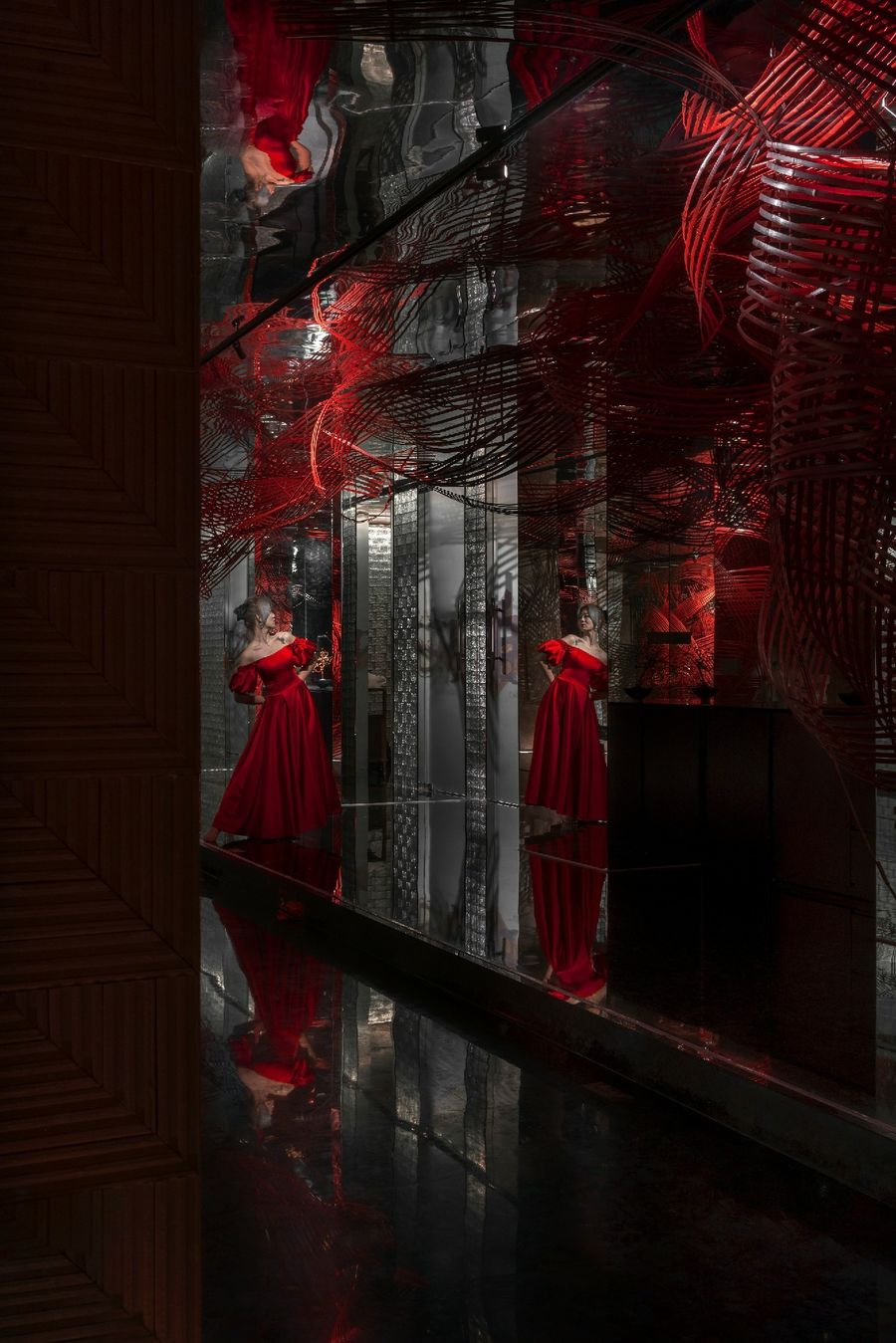

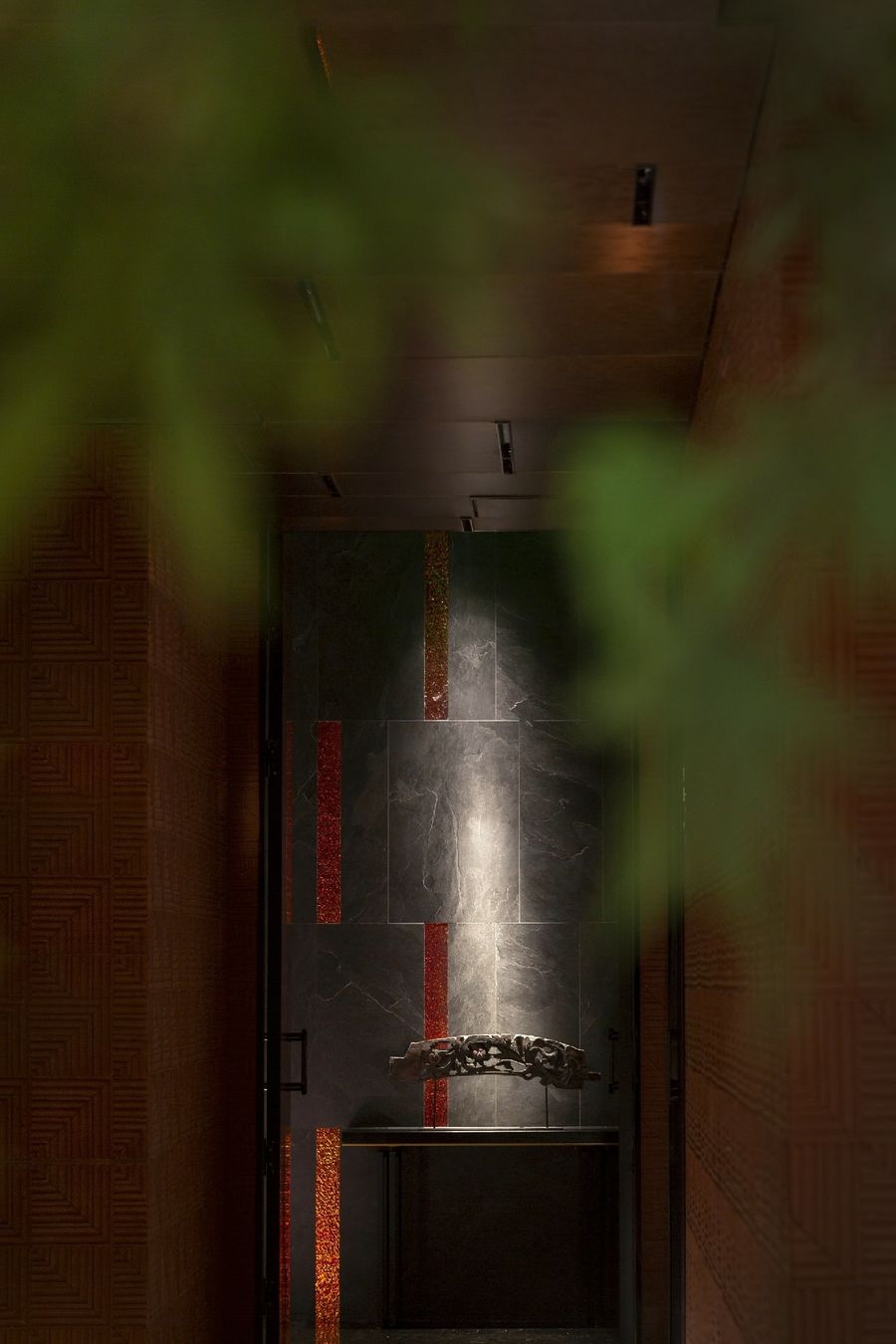
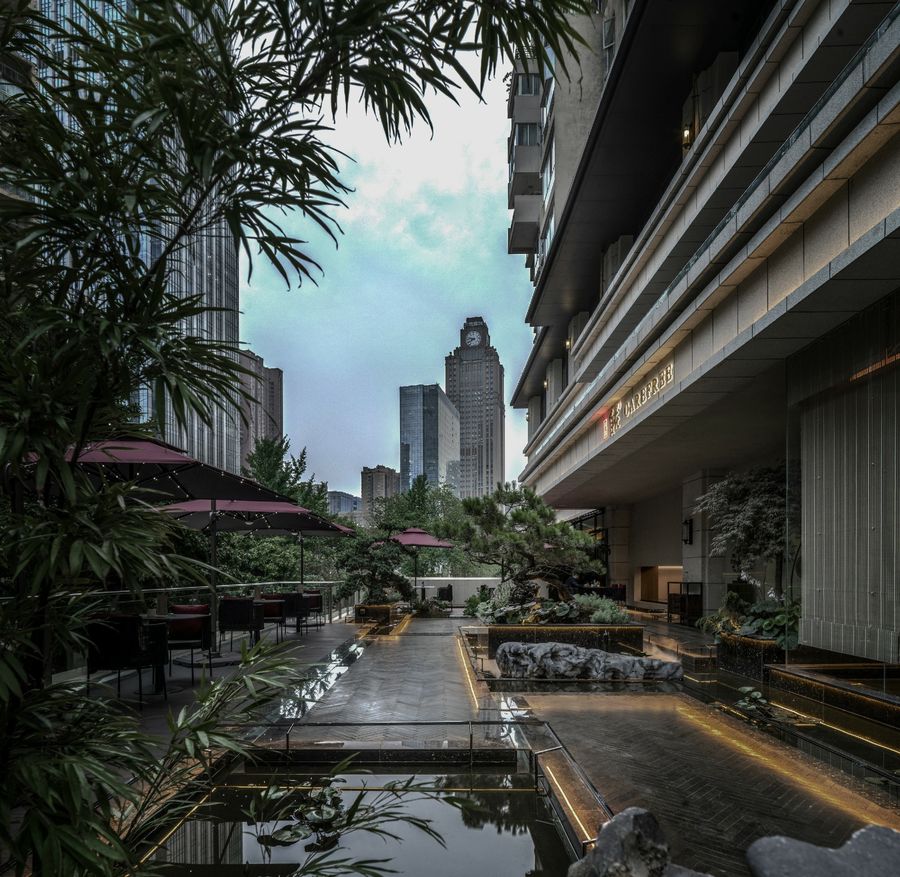
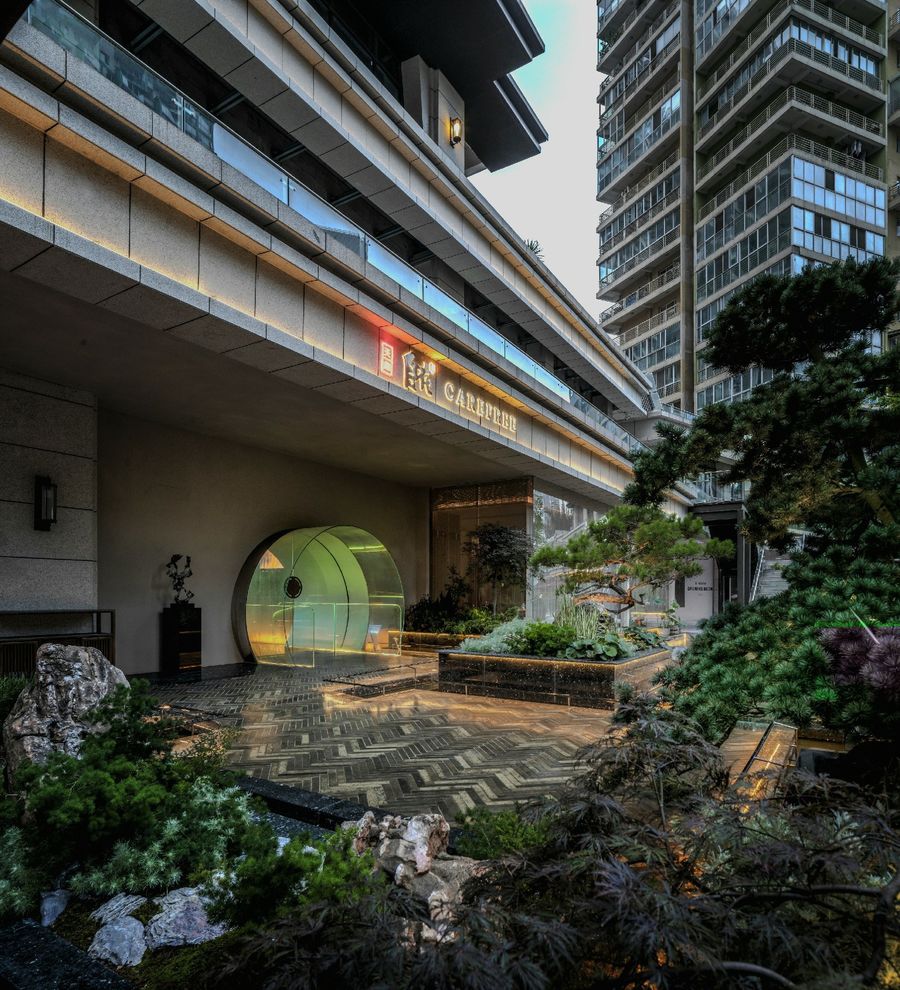
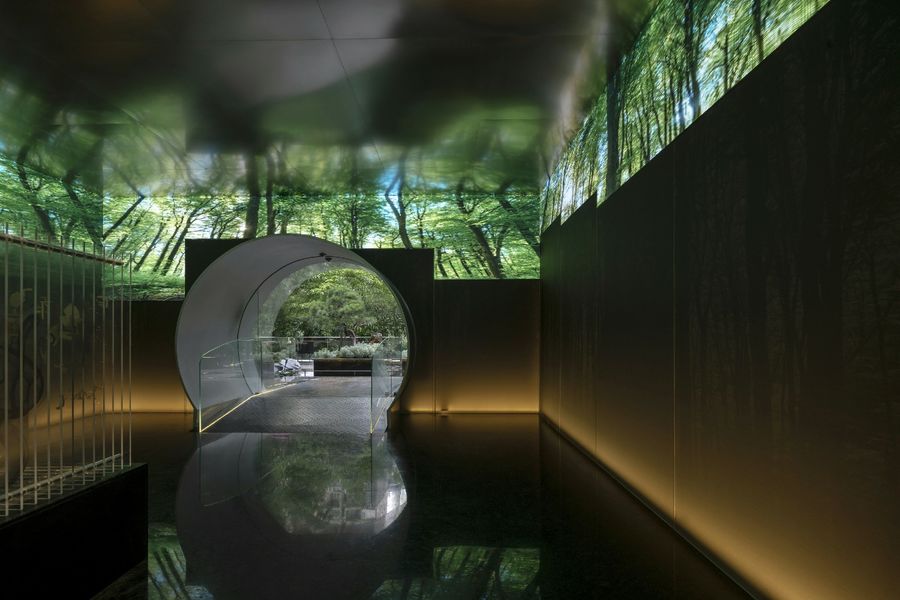
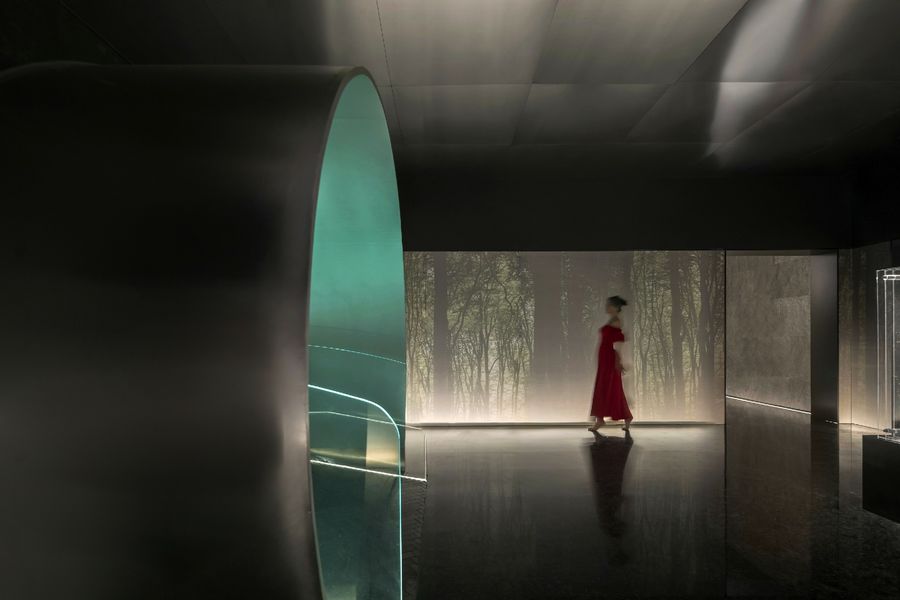
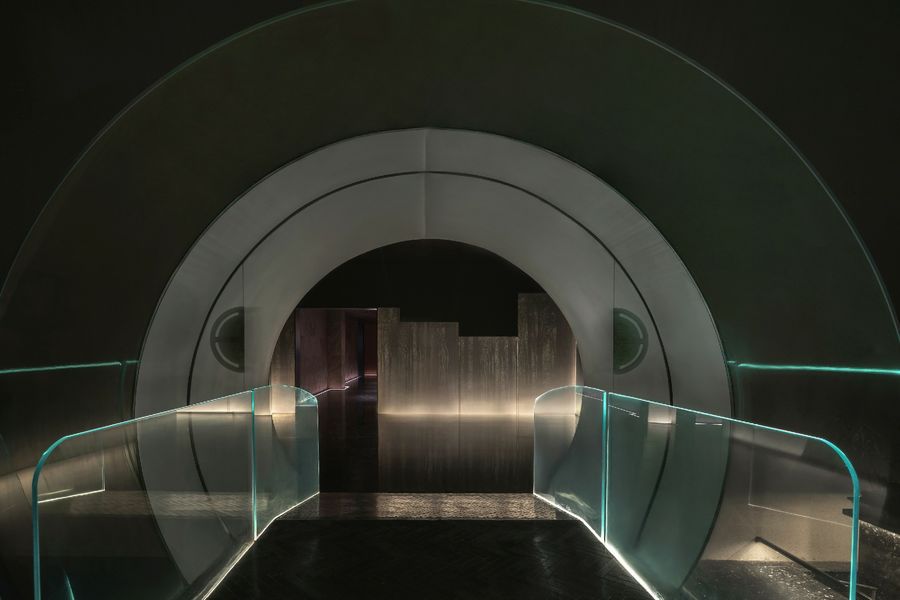

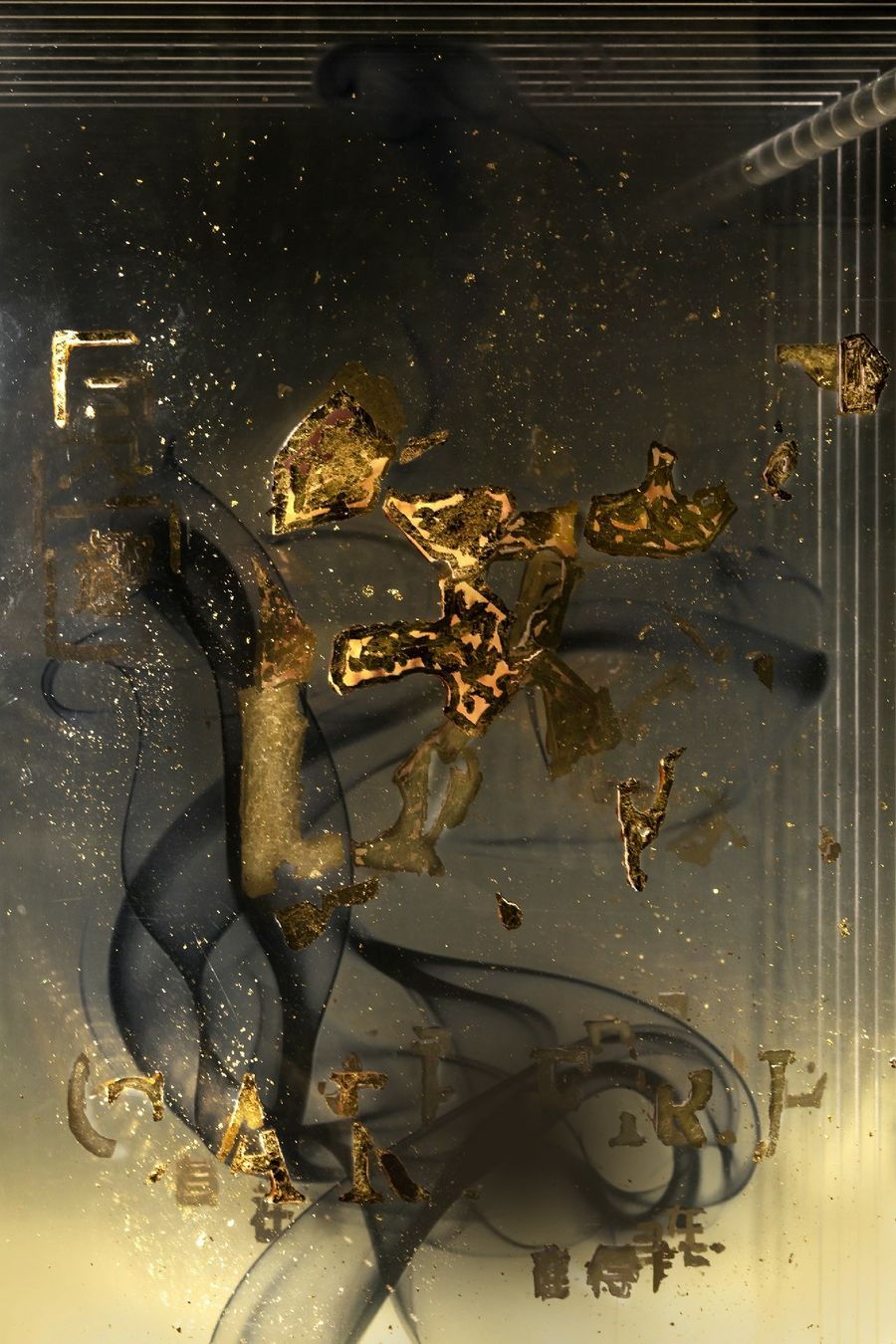
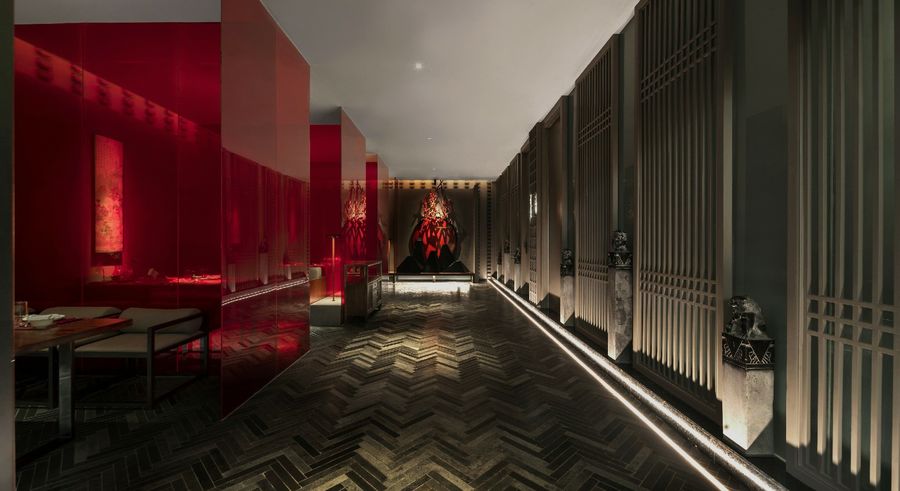
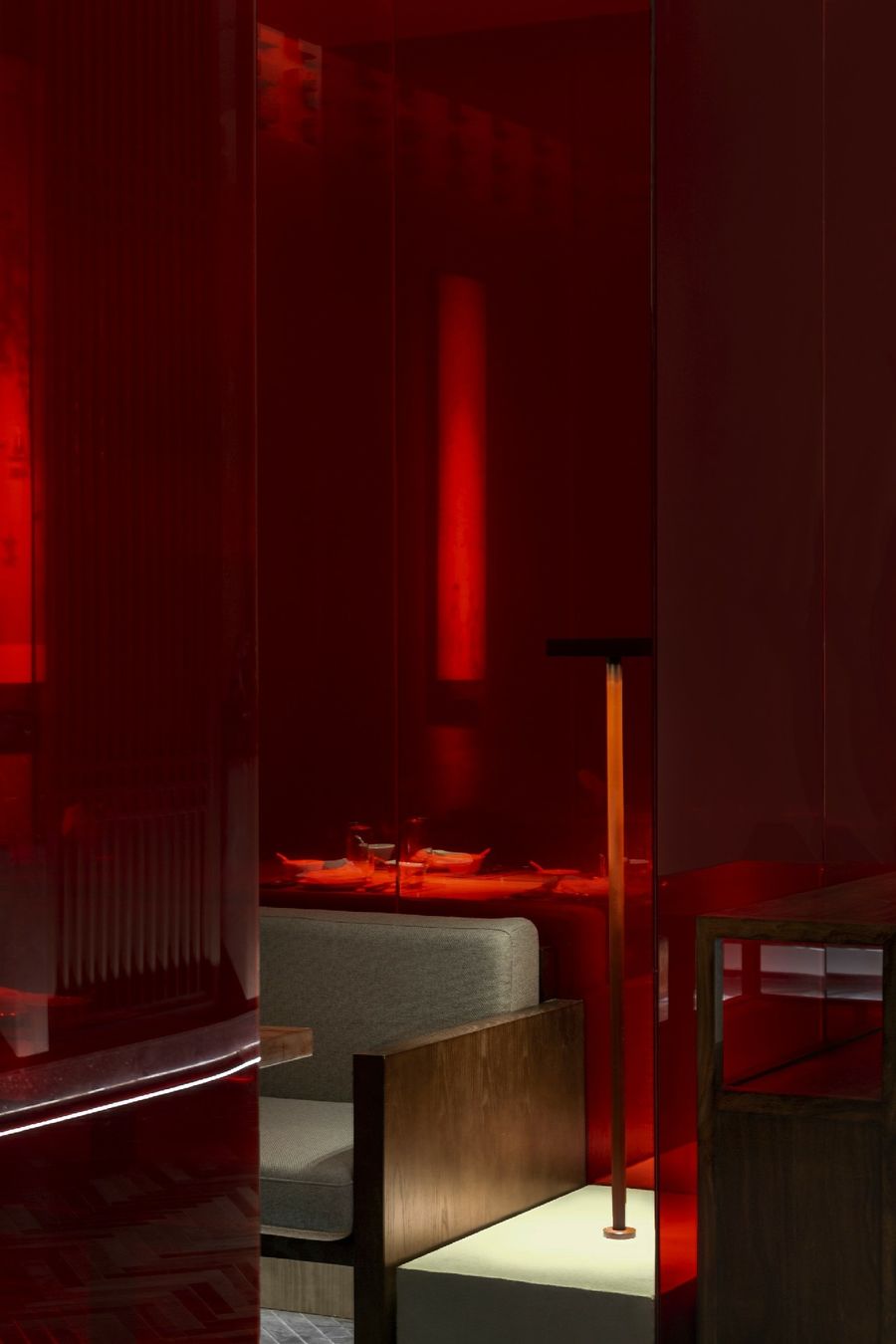
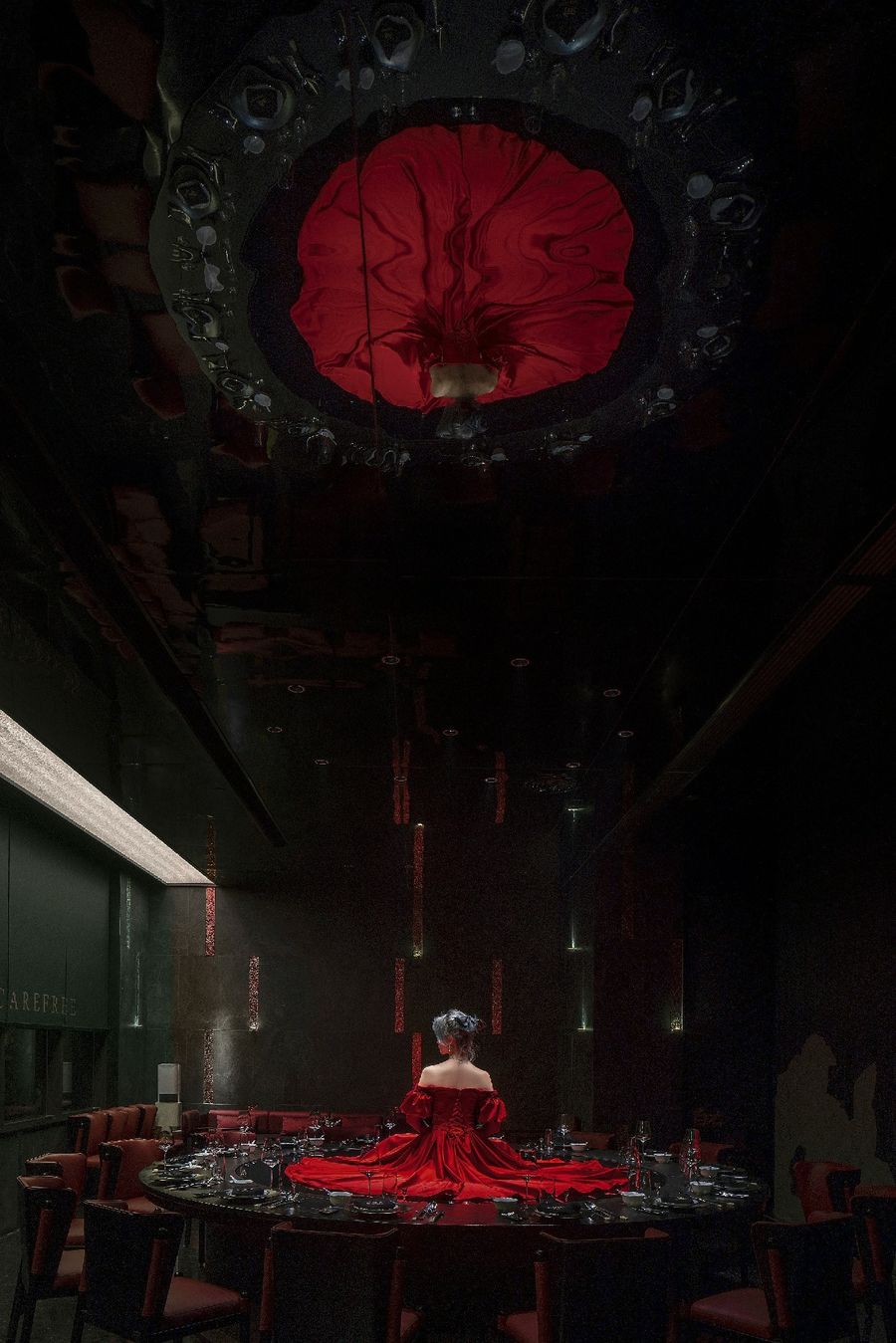
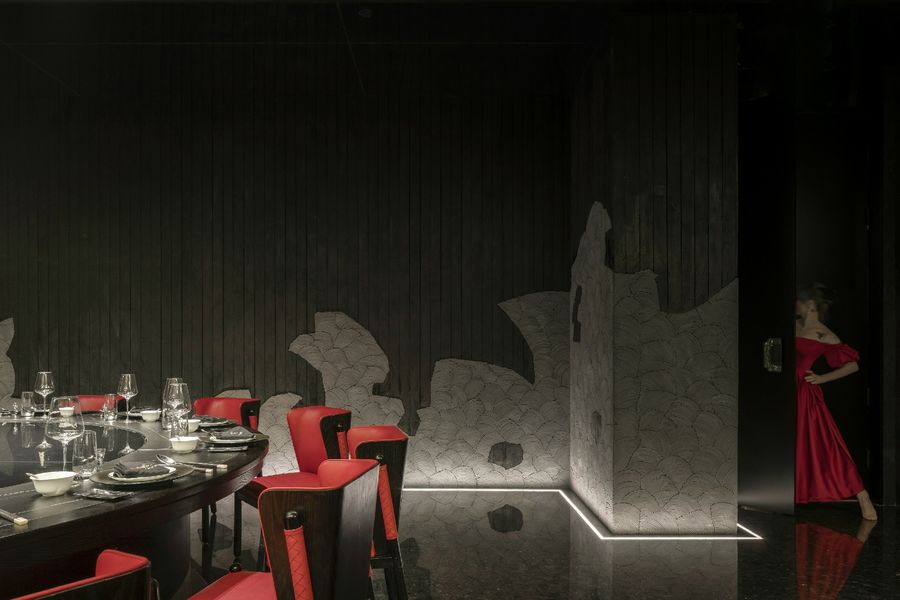
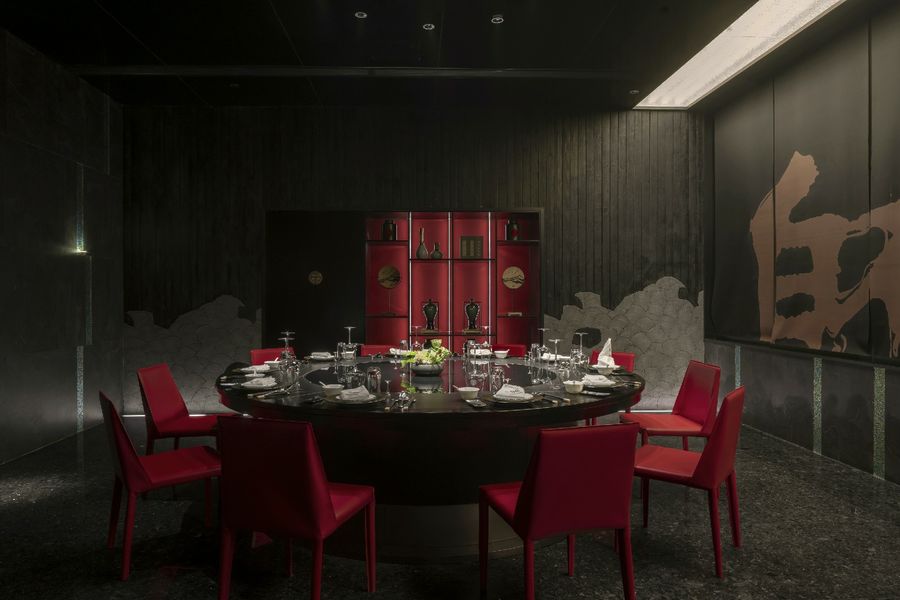
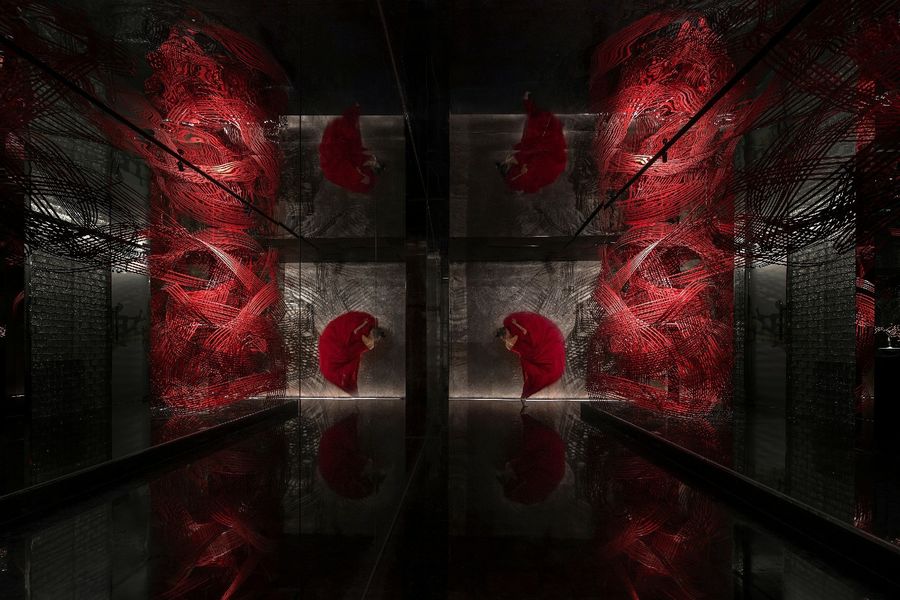
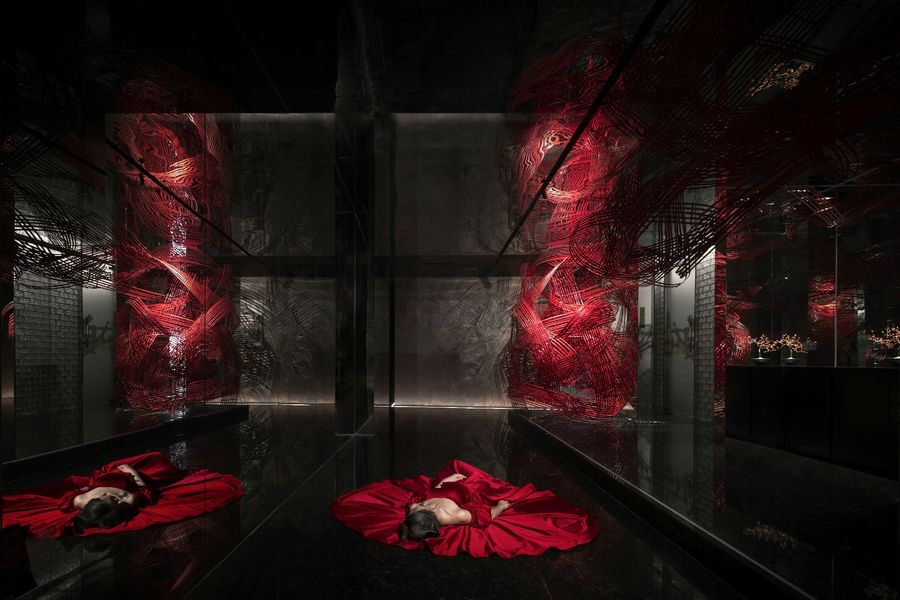
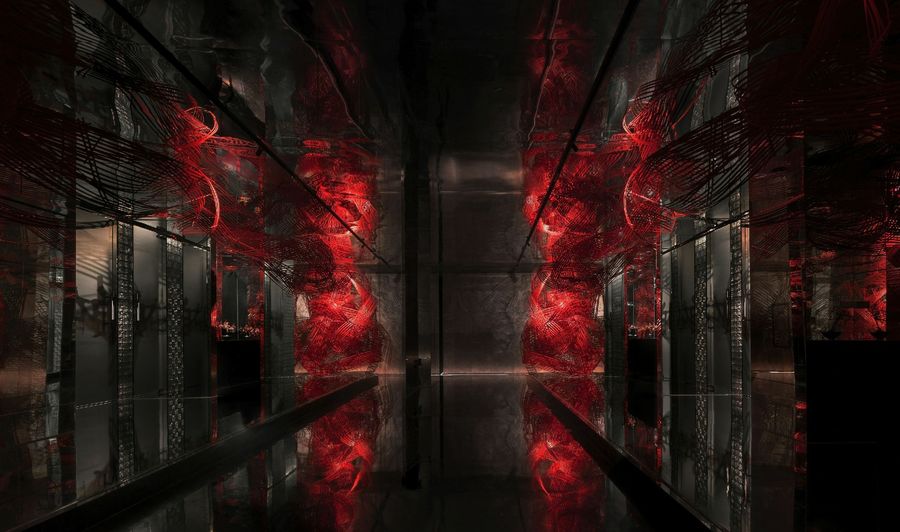
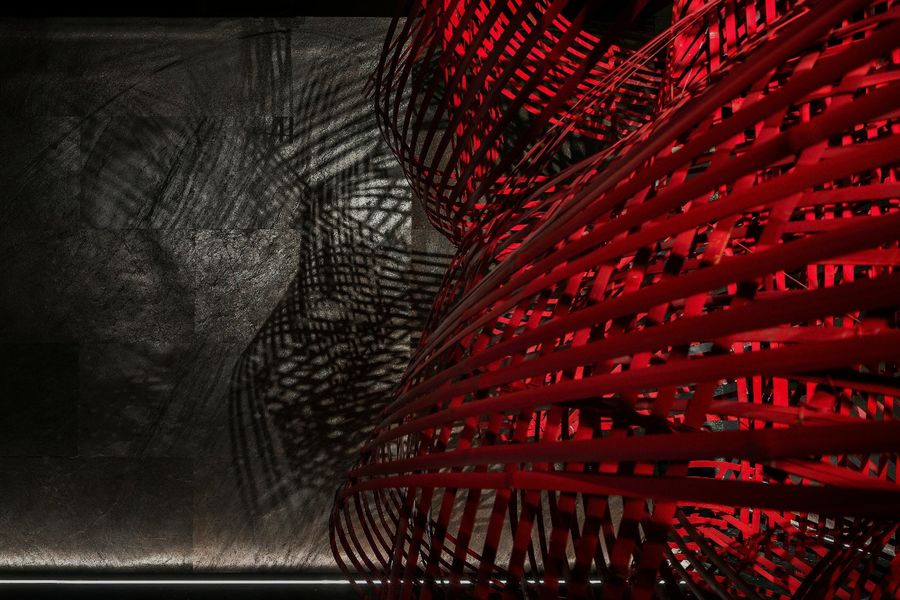
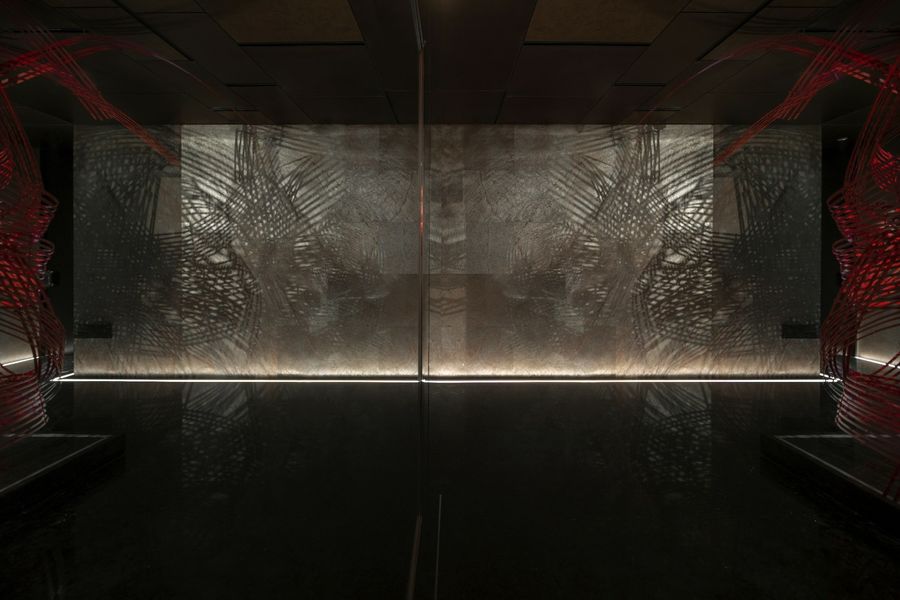
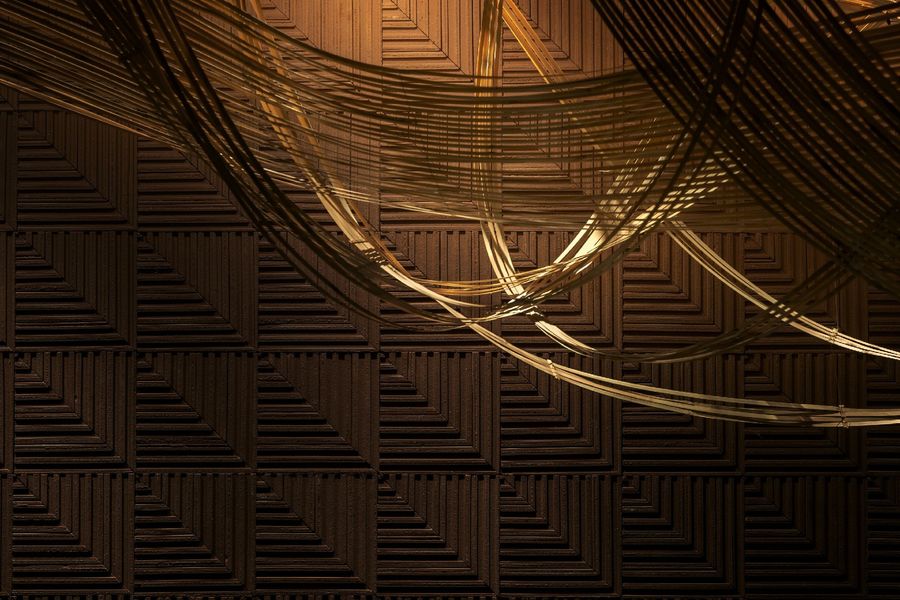
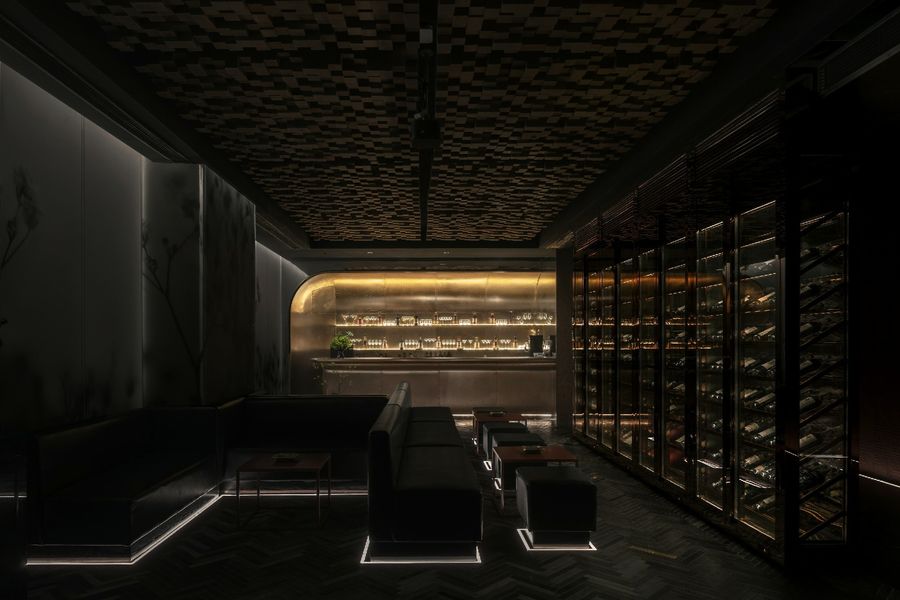
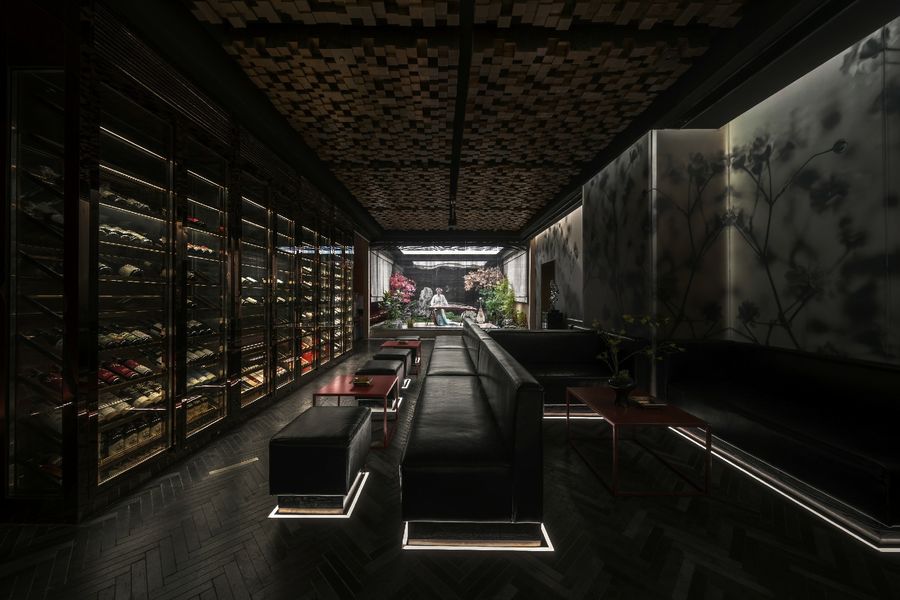
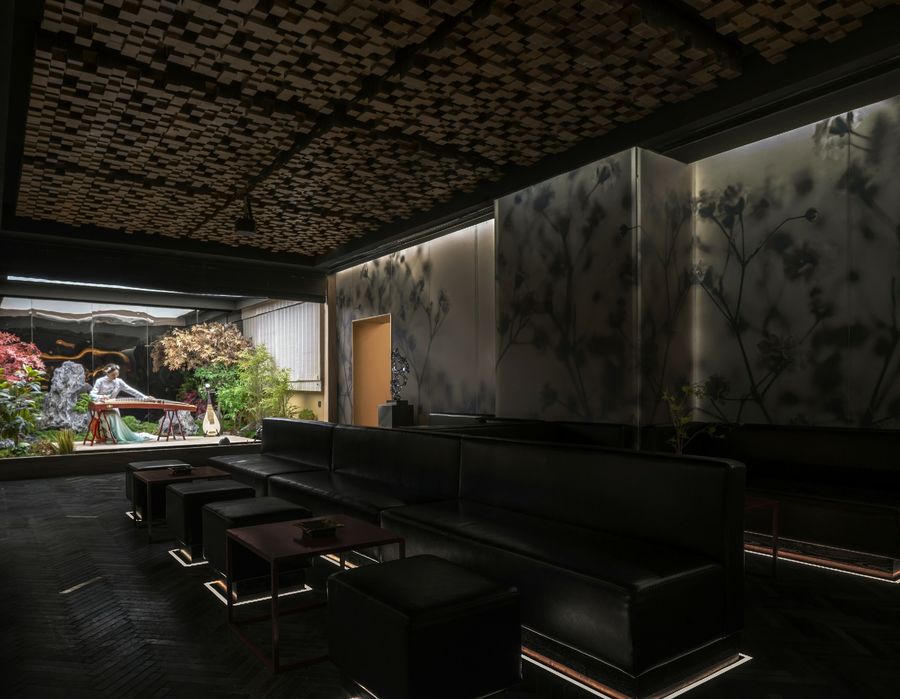
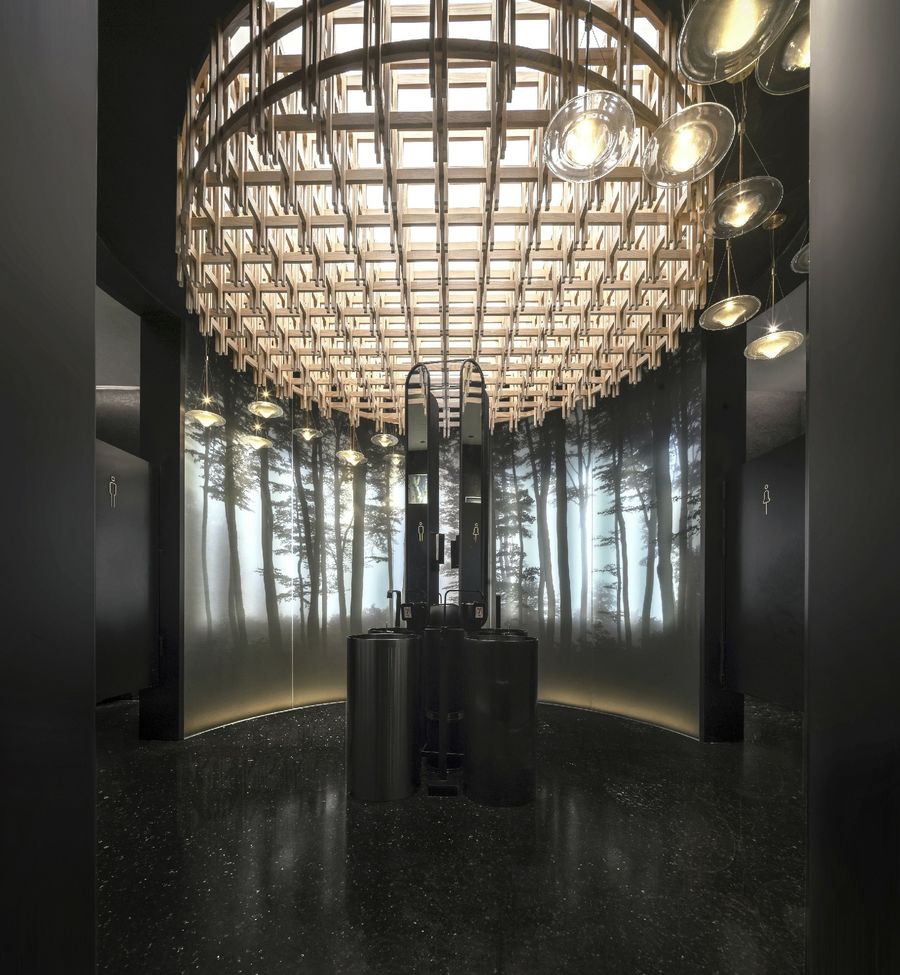
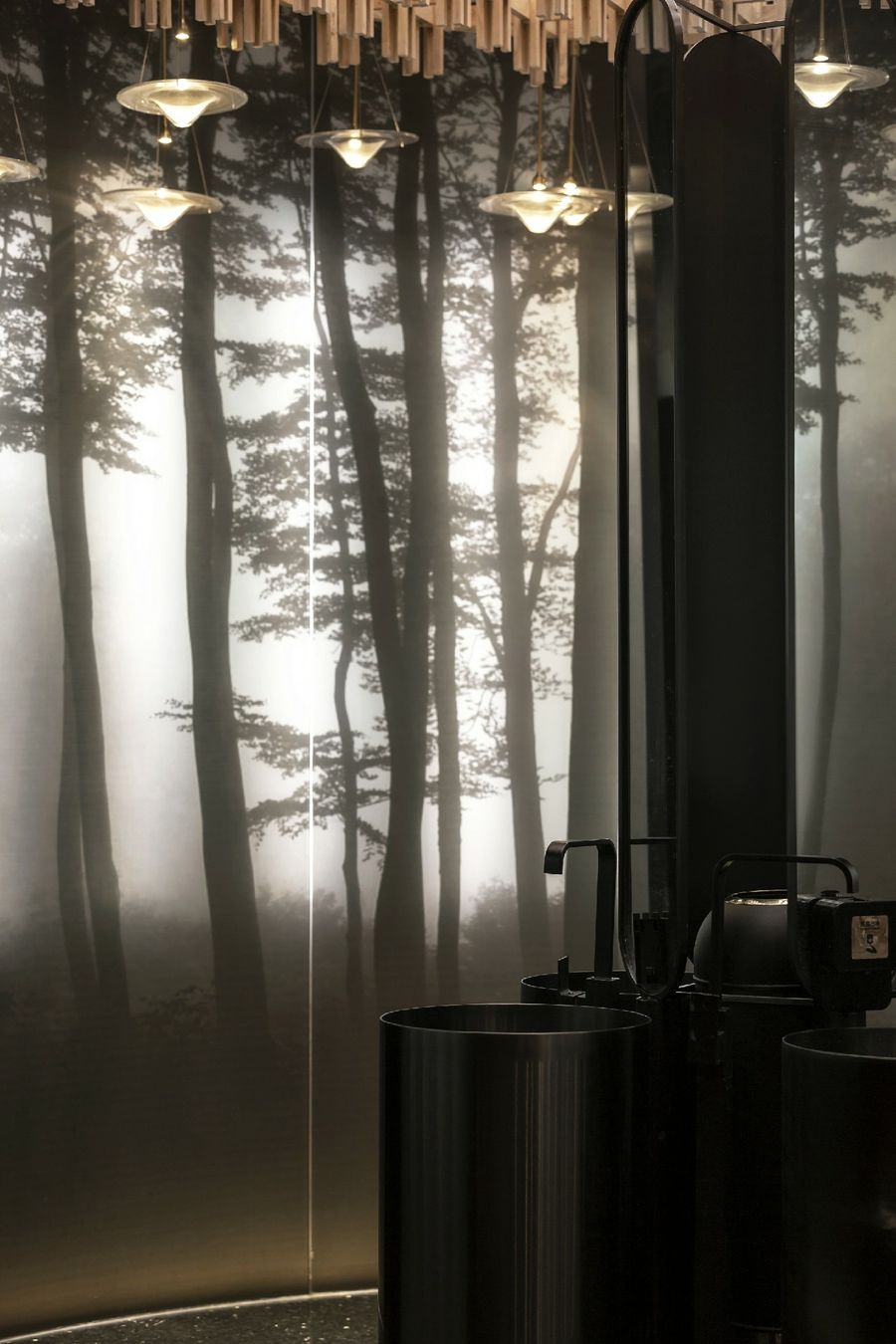
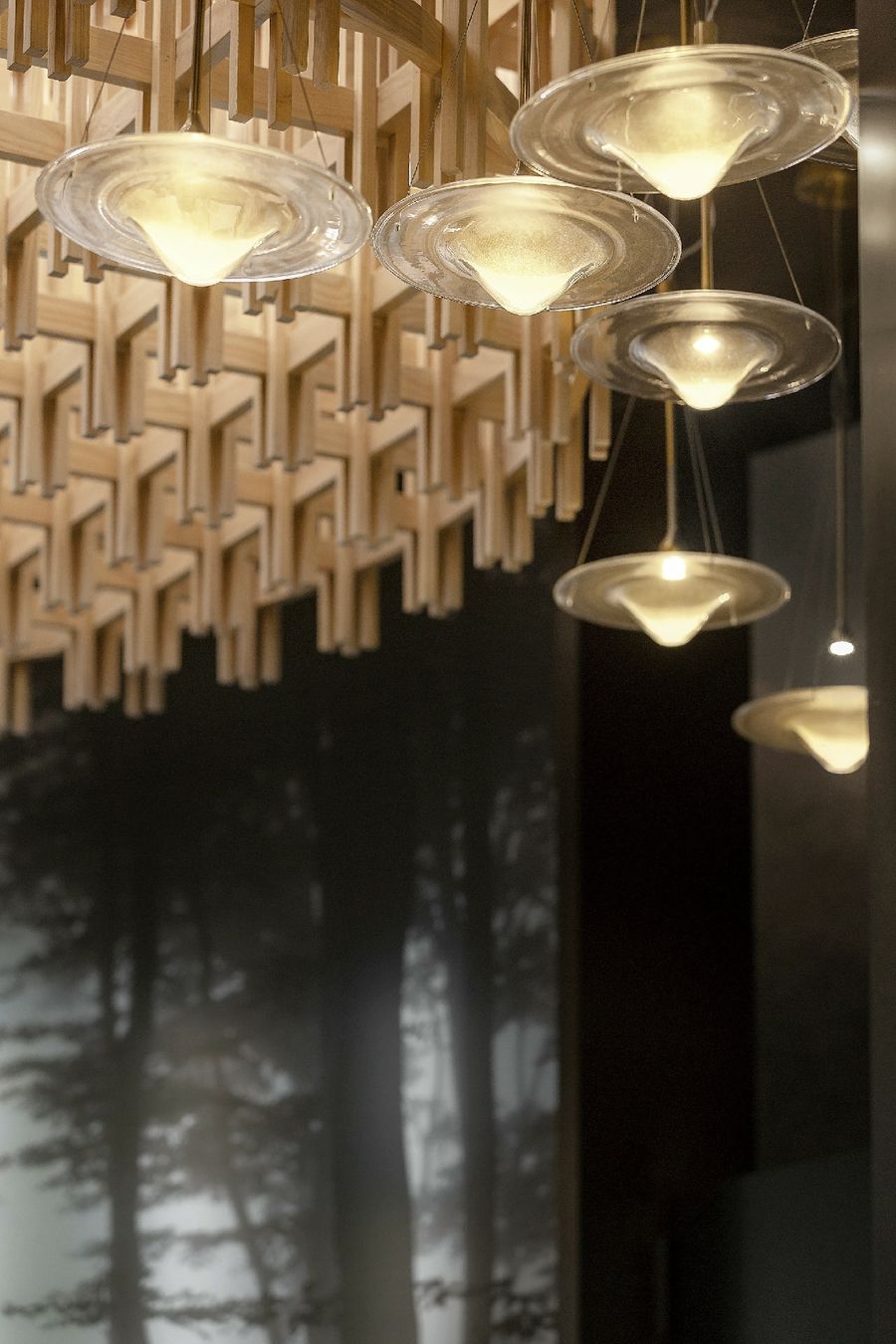
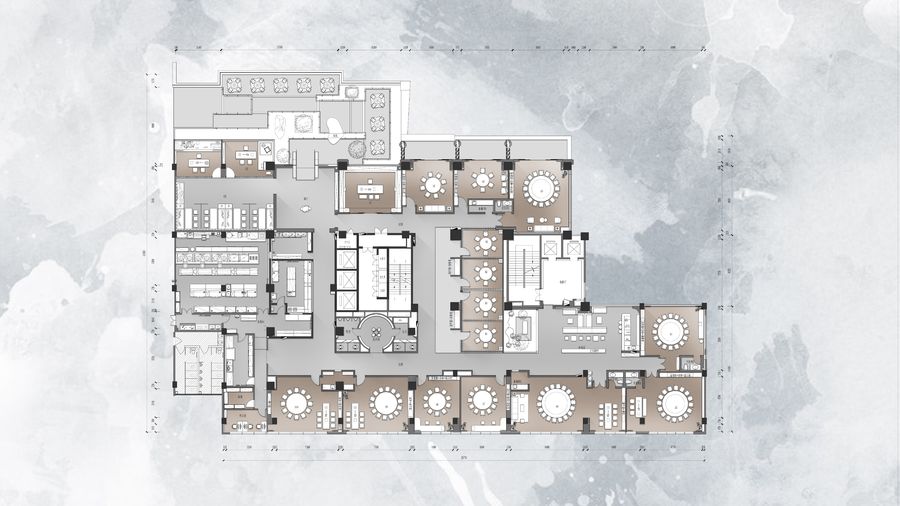











评论(0)